“The buzz of organic or natural farming practices are gaining momentum in India. It is a positive sign though, while people realize the consequences of toxic Green Revolution models which took over our seeds and traditional farming knowledge. However, the key concern is if we have relevant skills or have preserved suitable plants to feed 1.3 Billion people through natural farming. These are the major concerns which strike my heart to find a solution which is to become a full-time farmer” told a progressive farmer Jitta Bal Reddy, who started farmer-centric natural farming methods.
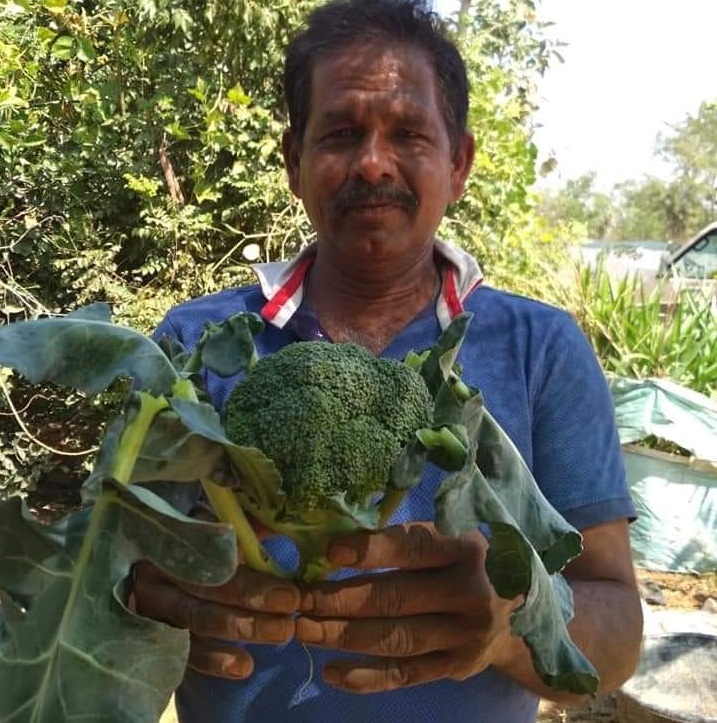
The average land holding size of an Indian household has shrunken to 1.1 Hectares, and still agriculture constitutes the livelihood opportunities for major sections of people. Besides, the rising population is pressurizing agricultural lands to convert to non-agricultural for various purposes. The population increase and the shrinkage of landholding is considered as one of the reasons for high yielding seeds and indiscriminate usage of synthetic chemicals in farming. So, the biggest challenge in front of the natural farming community is about high yielding strategies without compromising quality of food.
“Nature has everything with an abundance of possibilities. People who advocate natural farming practices should keep in mind about feasible alternatives without pushing either one animal based or one school of thought forcefully. It is a crucial time to focus on farmer-centric methodologies and on economically feasible plant identification and propagation programs ”.
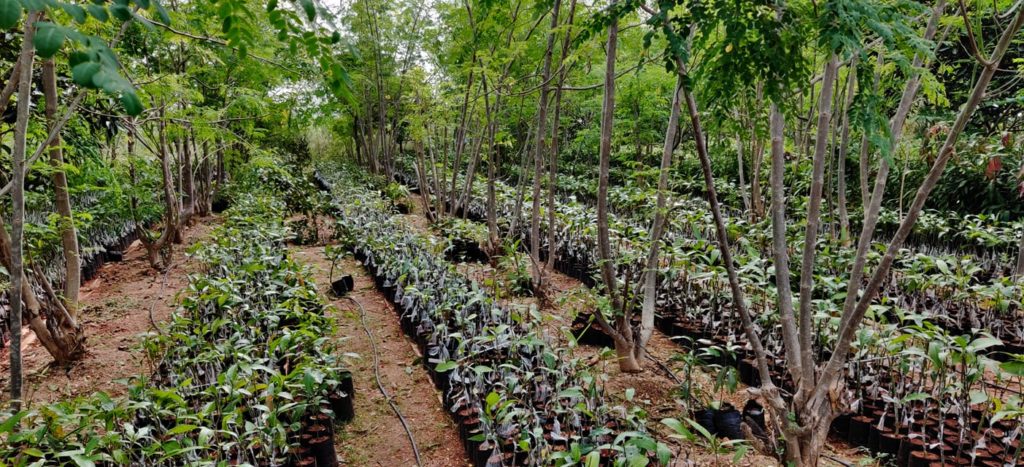
Being a small-scale farmer, he explained about the real time challenges while achieving the dreams of natural farming in India. The size of landholding and economic break-even of crops are the major reasons for keeping millions of farmers away from eco-friendly practices.
He is confident about the economic viability of indigenous plants which are available in different parts of the country. To preserve and multiply farmer-centric plant varieties Ameya Krishi runs a nursery at their center. Hundreds of varieties of plants available which include Jackfruit, Mango, Papaya, Apple ber, Drumstick, Lemon, Medicinal plant varieties which give yield for the entire year. They have about 300 plant varieties; and hundreds of farmers visit their nursery every month.
Ameya Krishi Kendram is located near Bhongir town, which is a 40 min journey from Hyderabad. The day-to-day activities at Ameya Krishi are taken care of by his wife, twelve year-old daughter along with him. “We divide our farm work accordingly; and everyone does their part. I am glad for their support while total work at the center divides into nursery, compost unit, plant propagation and growing vegetables.”
The center is full of green cover and we can see massive bamboo trees on the borders. He recalls one of his memories while we asked about them. “Few years ago, we went to a shop to buy a cradle for my daughter; and the price was around INR 18000. As a small-scale farmer, I couldn’t bear such an amount. Then, I convinced my daughter that I will make a special cradle for her with bamboo which grows at our farm. I collected that bamboo variety from a farmer from Assam, and the specialty of this variety is that it will grow at a massive width. Hopefully, my daughter will get her gift very soon” told Balreddy with a happy face. Here at the nursery, every seed and plant has its own interesting story; and you will be surprised with his twelve-year old daughter ‘Ameya’ with her storytelling about these plants.
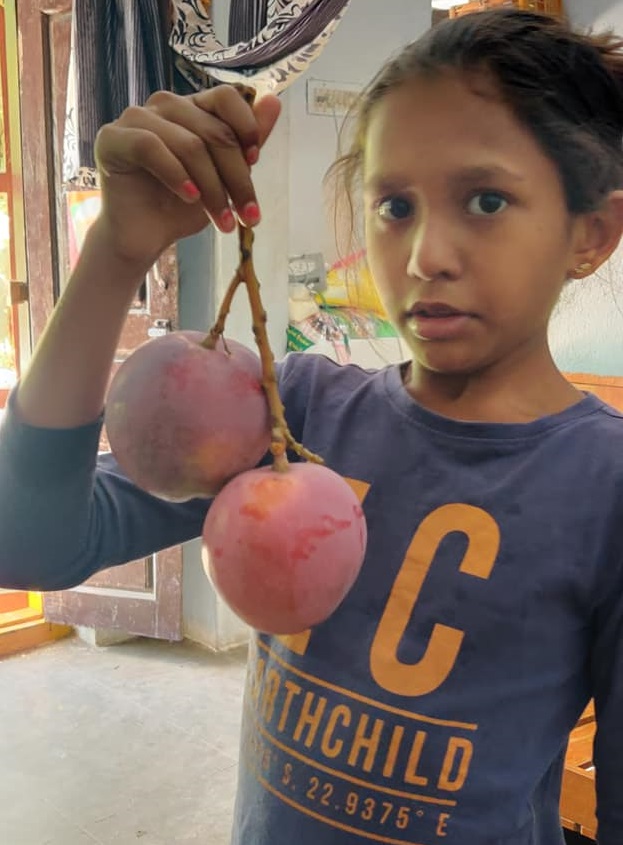

What made him think about Agro Homeo?
Jitta Balreddy worked as a farm columnist for several Telugu news publishers. He recalls the success stories of Homeo medicines while working with tribal groups. “Several times in my life, I personally witnessed the power of Homeo medicine. In my early thirties, I was severely affected by kidney infection. I was glad to connect with noted Telugu journalist, Ayurveda expert K.N.Y Patanjali; and Dr. Surendra Raju who practices Homeo. Through their support, I used Ayurveda medicine and the results were amazing to overcome Kidney infections”.
“My early Homeo work experiences gave me inspiration for plant health experiments. So, I searched for books relating to homeo medicines and plant health management. Then, I came to know about ‘Vaikunthanath Das Kaviraj’ who intensively worked on that niche. We began our experiments quite long ago, and through personal experiences, we developed Agro Homeo compositions to tackle plant health issues related to Bacteria, fungi and virus. For the last few days, several farmers across the country are approaching us for ‘Agro Homeo Methods’ to save their crops. Through word of mouth, it is reaching the masses and I am happy about that.”
“We will be opening a farm school for enthusiastic natural farmers very soon. If you want to learn about natural farming methods visit Ameya Krishi”,he concluded.
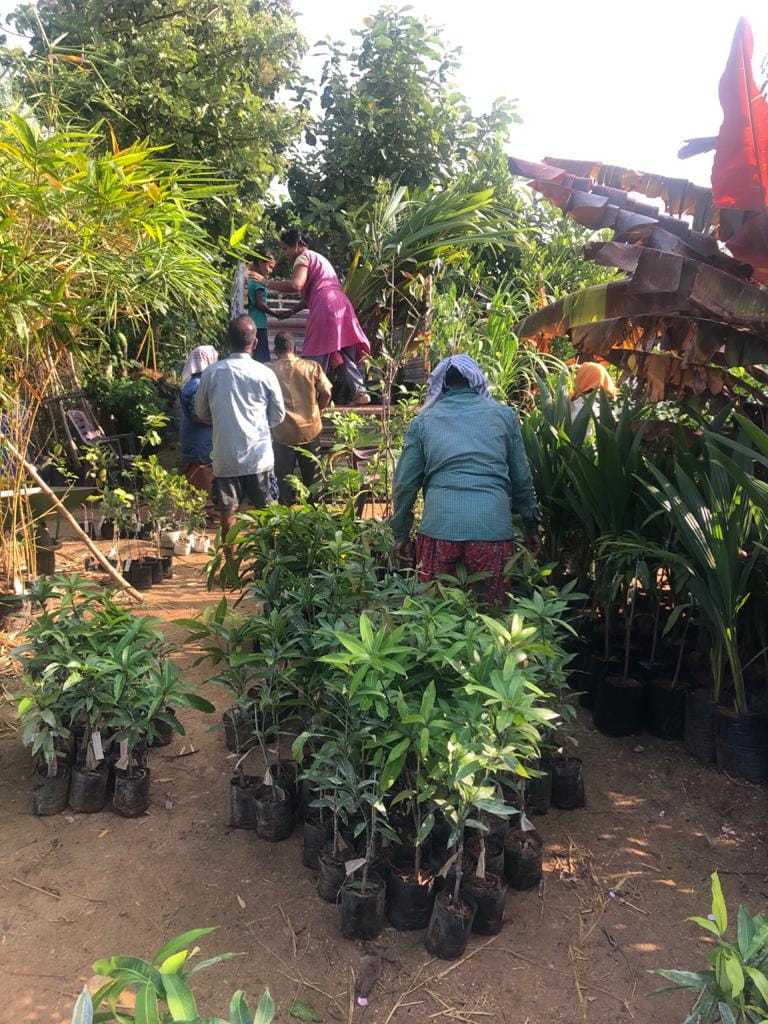
Ameya Krishi is one of the best examples on how a single farmer commitment could make a big difference for fellow farmers while preserving plants and revolutionizing plant management through Agro Homeo methods. If you wish to give a visit to Ameya Krishi, please find the same on google map.



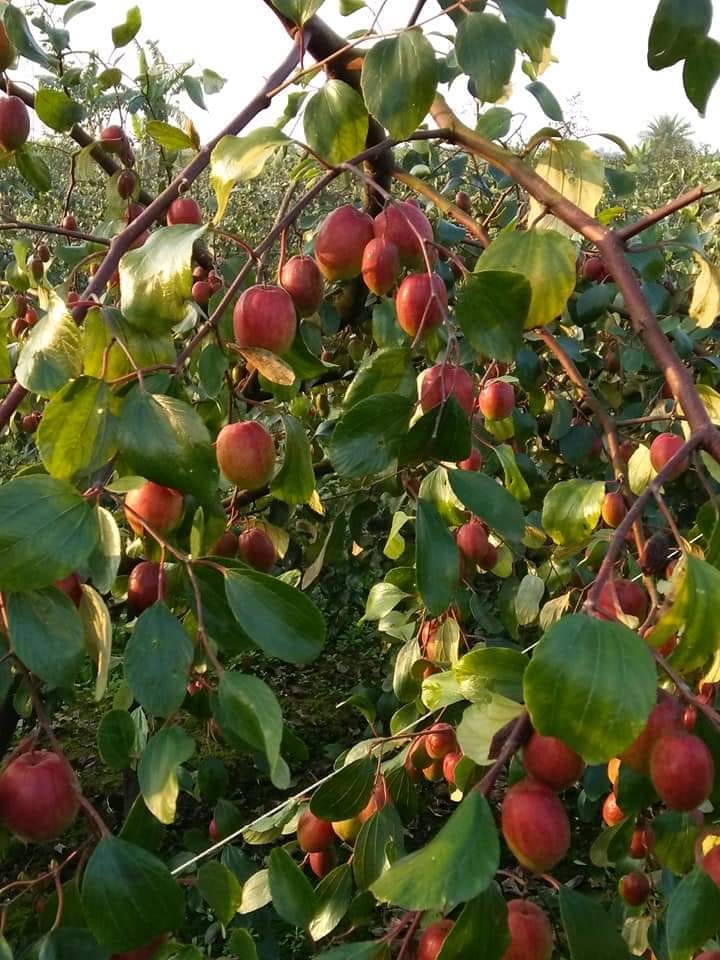
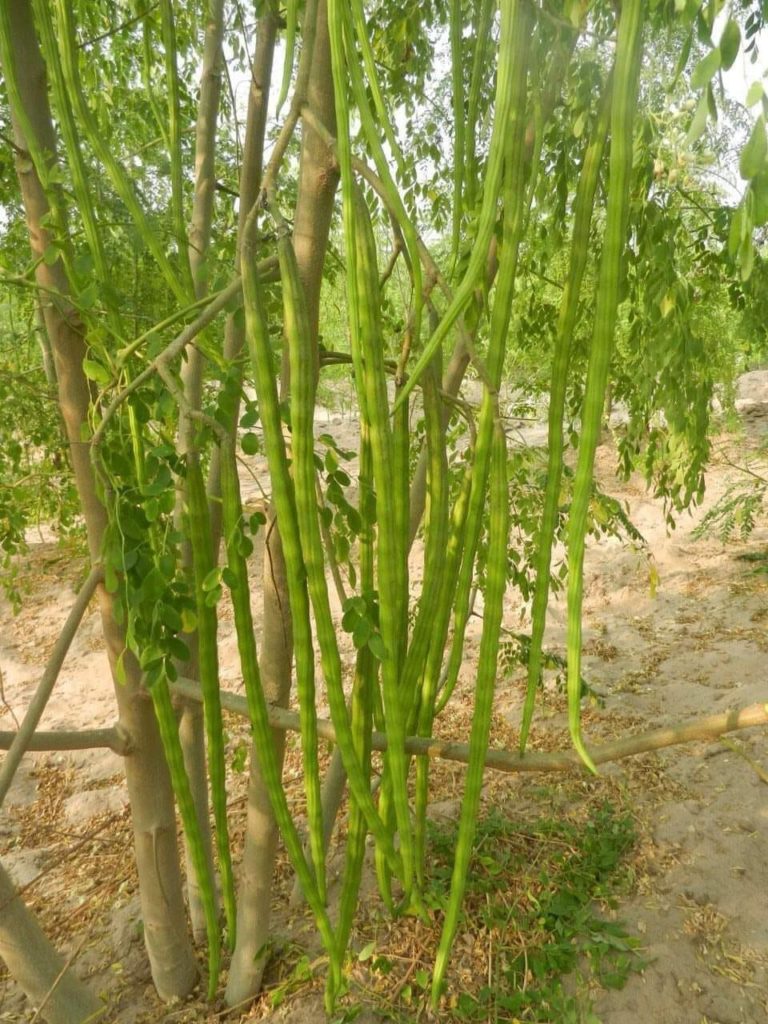
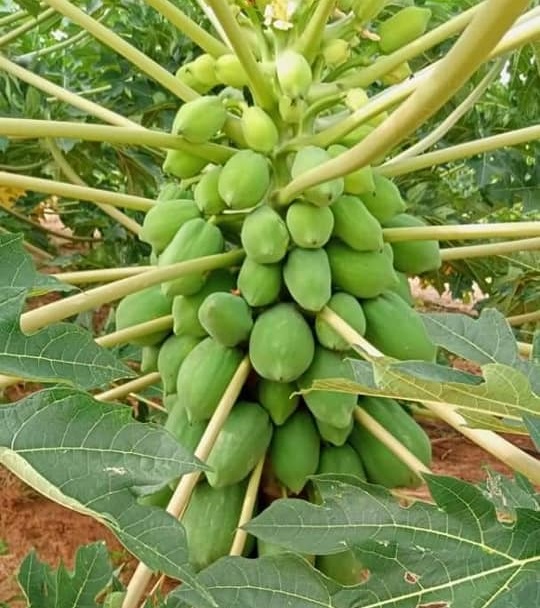
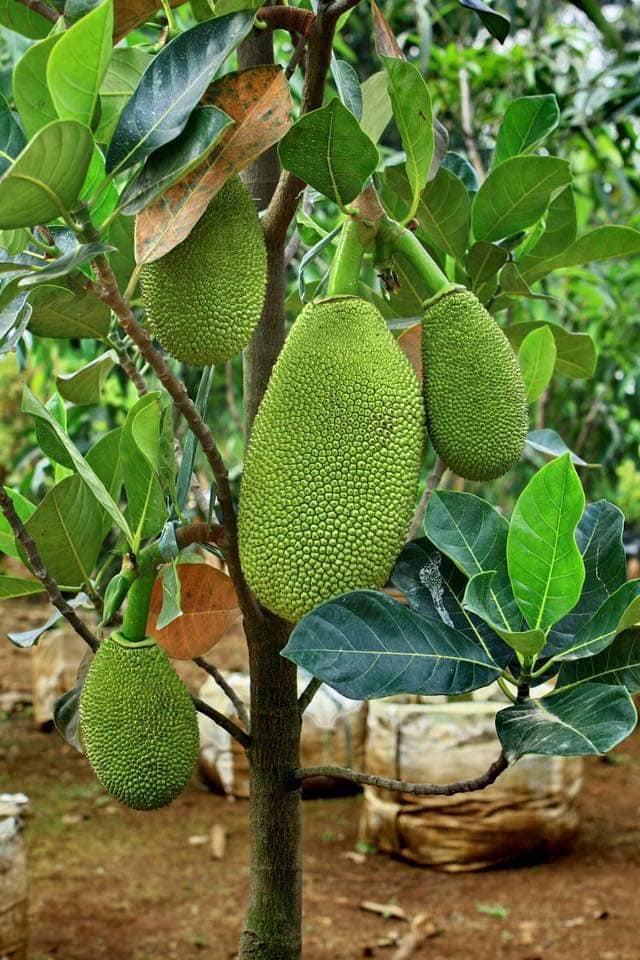
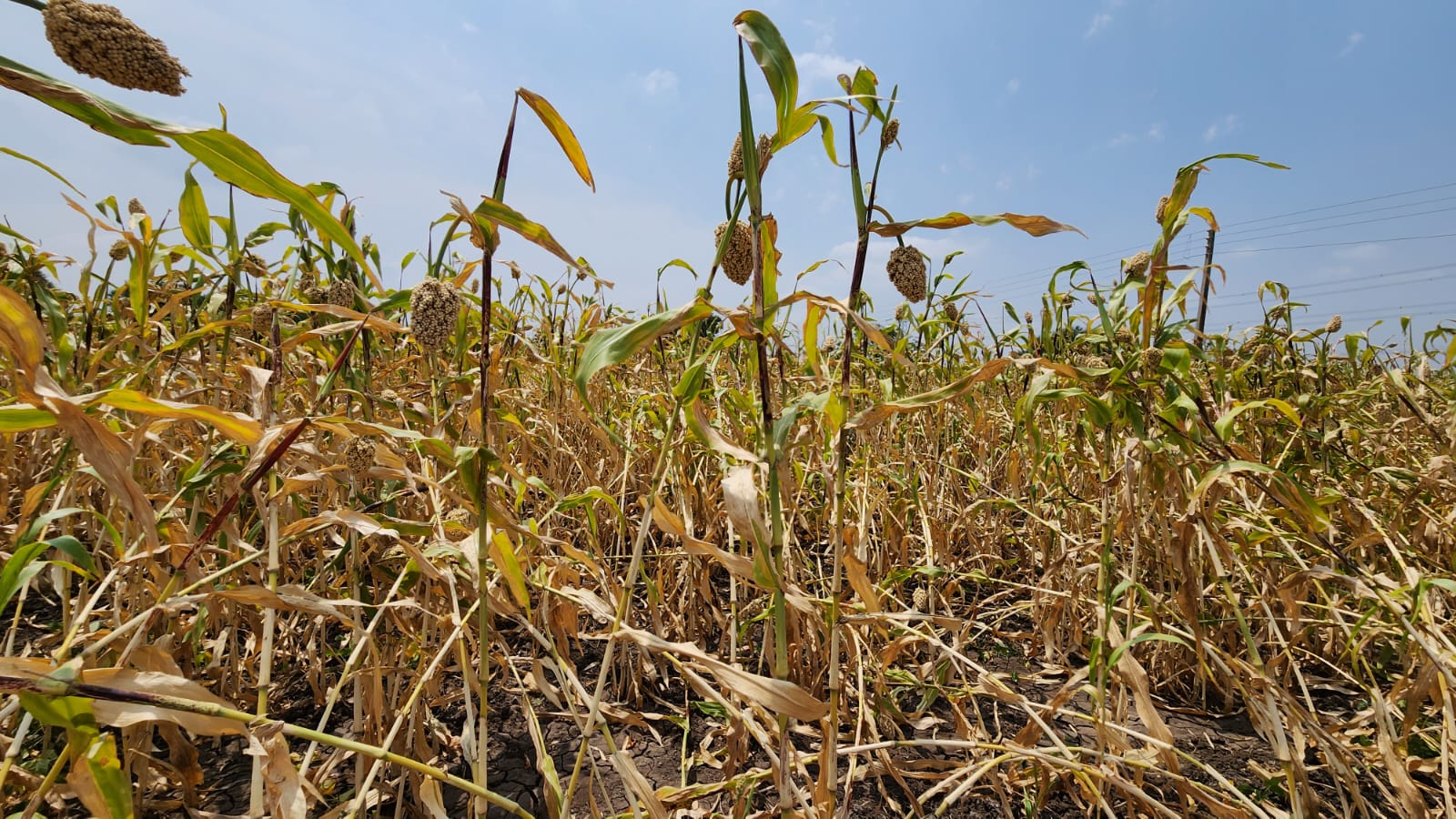

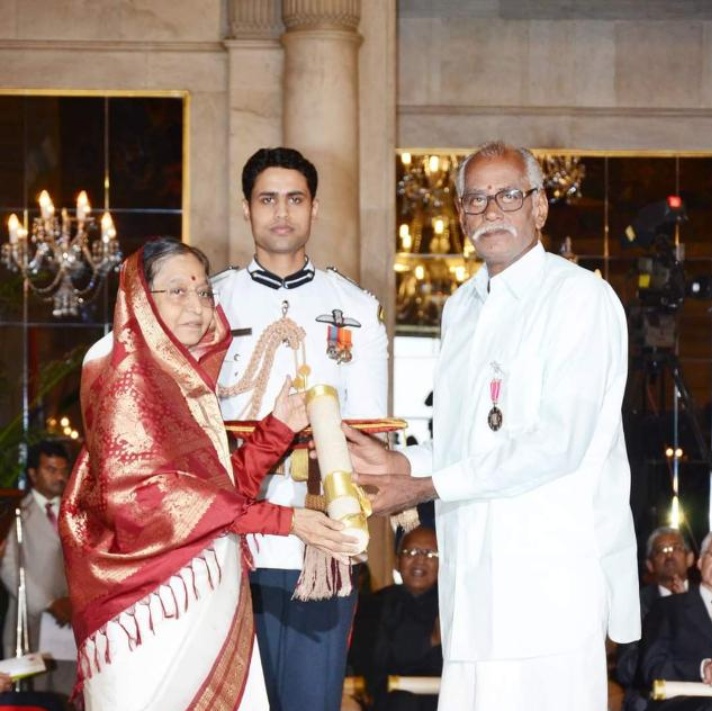
Very good effort
500. Mango trees
Hello – Thanks for sharing these articles. It is awesome to know that plants can also benefit from homeopathy!
We live in the Midwest portion of the U.S. (Minnesota – Zone 4 planting region). Many years ago we planted two different apple tree varieties in our yard and would LOVE to know how to help them thrive while keeping the pests away naturally throughout the growing season (spring to fall). The fruit is, more often than not, overtaken by worms, bees, &/or squirrels before we can even eat it. Is there a homeopathy we can use to help prevent these types of outside invasions that won’t harm us? Thank you, in advance, for your help in this endeavor.